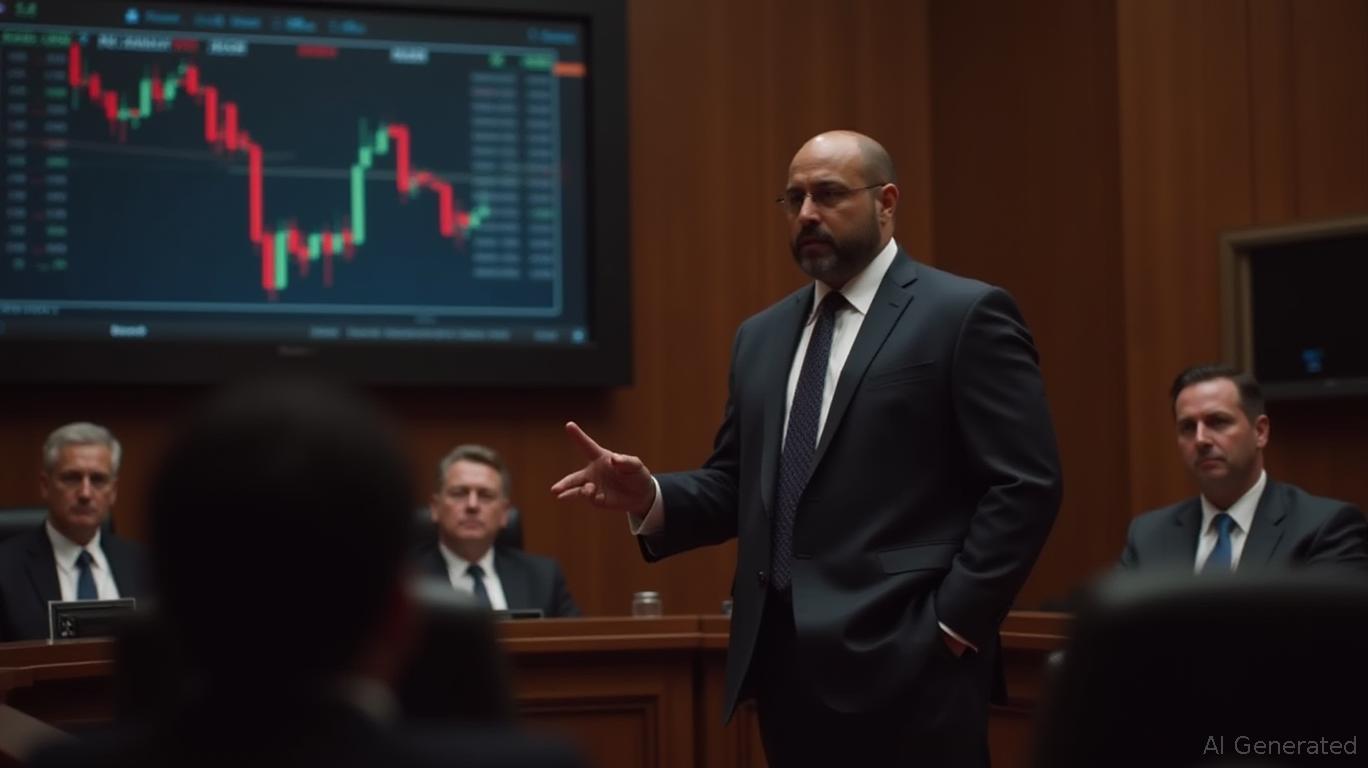Kalshi’s Federal Lawsuit Challenges CFTC Authority Amid Conflict With New York Sports Betting Prohibition
- Kalshi sues New York over sports betting ban, claiming CFTC's federal jurisdiction under the Supremacy Clause. - New York alleges Kalshi operates unlicensed contracts as "sports wagering," demanding compliance with state gambling laws. - Legal experts highlight federal courts' prior favor toward Kalshi, citing CFTC's 2020 DCM designation as regulatory shield. - Case could set precedent for state-federal regulatory conflicts, with Kalshi risking $50M+ annual revenue if banned in New York. - Mixed judicial
Kalshi, a prediction market platform registered with the CFTC, has initiated a federal lawsuit against the New York State Gaming Commission in an effort to halt the enforcement of the state's prohibition on its sports betting contracts. The company contends that the Commodity Futures Trading Commission (CFTC) has sole authority over derivatives trading under the Commodity Exchange Act, making New York's regulatory measures unconstitutional under the Supremacy Clause, as reported by a
The conflict arises from a cease-and-desist order issued by New York on October 24, which accused Kalshi of running an unauthorized mobile sports betting service. State officials classified Kalshi's offerings as "sports wagering" under local statutes, requiring the company to adhere to the same licensing, tax, and regulatory standards as conventional sportsbooks, according to

Legal analysts observe that Kalshi's tactic of initiating proceedings in federal court has proven advantageous in previous disputes. Daniel Wallach, an expert in gaming law, pointed out that this legal strategy shifts the focus to federal preemption rather than the contracts' legality. In comparable cases in Nevada and New Jersey, courts have issued preliminary injunctions in Kalshi's favor, determining that the CFTC's exclusive regulatory authority over swaps and futures overrides state laws, as referenced in a
The implications are significant for Kalshi, which projects that it could lose more than $50 million in annual revenue in New York if forced to discontinue its services. The company is also facing increasing regulatory scrutiny, with states such as Illinois and Arizona likely to adopt similar measures as New York. Wallach suggests that recent court decisions favoring state regulators, like Nevada's dismissal of Crypto.com's case, may encourage additional states to challenge prediction markets, as noted by Decrypt.
The New York gaming commission has yet to issue a public statement regarding the lawsuit but has reiterated its mandate to uphold state gambling regulations. The commission's cease-and-desist notice warned of "imminent civil penalties and fines" should Kalshi persist in offering sports event contracts, which the commission sees as undermining the state's regulated sports betting sector, according to Sports Betting Dime.
The resolution of this legal battle could influence the future relationship between state and federal authorities in the fast-changing prediction markets industry. With more than 1.2 million event contracts traded each year on CFTC-supervised platforms, the CFTC has established itself as a central authority in preventing inconsistent regulatory approaches, as highlighted by Coinotag.
Disclaimer: The content of this article solely reflects the author's opinion and does not represent the platform in any capacity. This article is not intended to serve as a reference for making investment decisions.
You may also like
Ethereum Updates: ETHZilla Utilizes ETH Proceeds for Buybacks Amid Ongoing Crypto Community Discussion on Price Versus Value Risks
- ETHZilla sold $40M in ETH to fund buybacks, aiming to reduce its 30% stock-NETV discount by repurchasing undervalued shares. - Shareholder pressure from activist investor Semenikhin drove the strategy, aligning with industry trends seen at firms like SharpLink Gaming. - The move sparked debate: proponents highlight NAV boosts and short-covering, while critics warn of ETH price suppression risks. - ETHZilla retains $400M in ETH treasury post-sale, maintaining its position as a major public Ethereum holder

Cardano News Today: Cardano’s $0.63 Level Under Scrutiny—Will It Pave the Way to $1.70?
- ADA's $0.63 support level is critical for determining its path toward $1.70, with technical analysis highlighting a symmetrical triangle pattern. - A break above $0.63 could trigger a 157% rally to $1.75, while a breakdown risks a drop to $0.50, according to Coinotag and The Crypto Basic. - Fundamental catalysts include Cardano's gTLD initiatives and rising staking participation (70%), but whale activity has shifted to projects like Mutuum Finance. - Mixed market dynamics show 0.65% 24-hour gains but 38%

Verification Supersedes Guesswork: Noomez’s Open Burn Process Sets a New Standard for Trust in Crypto
- Noomez ($NNZ) introduces a 28-stage presale with escalating prices and automatic token burns to create scarcity and transparency. - Its deflationary model includes post-presale liquidity locks, staking rewards, and verifiable on-chain burns to reinforce trust. - The project aligns with crypto market trends favoring structured, utility-driven assets over speculative hype, attracting risk-aware investors. - A planned Noom Engine framework will automate governance and further reduce supply, though risks lik

SWC Shows Insider Confidence as 22% of Shares Held by Major Owners